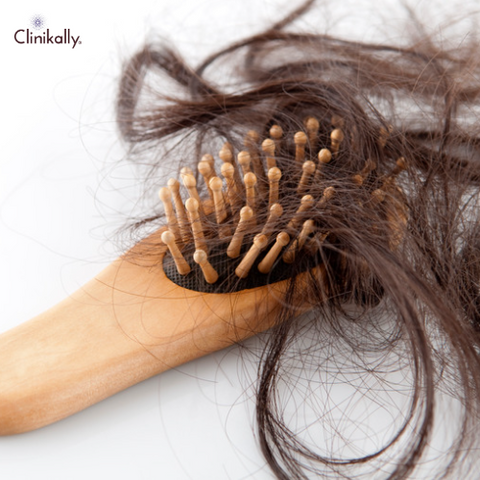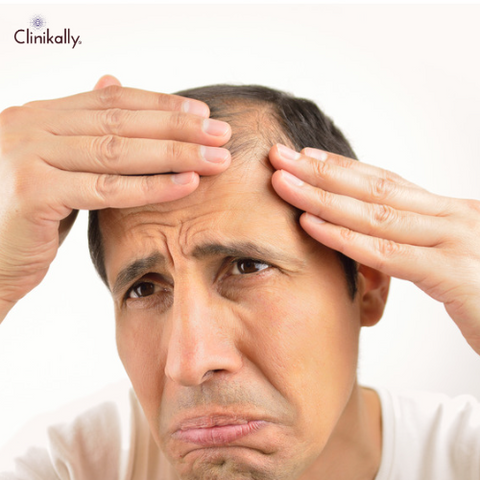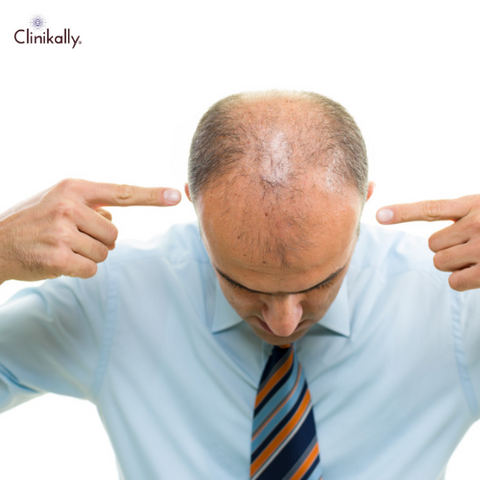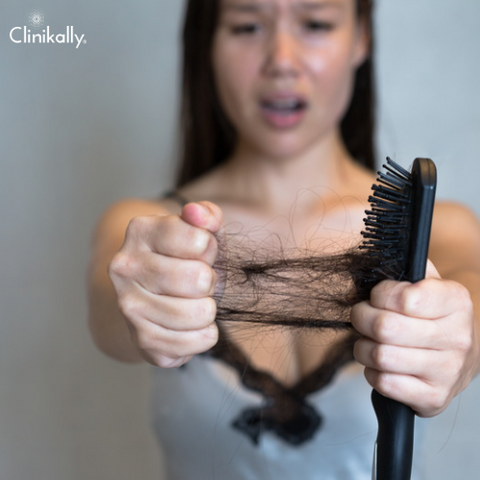Currently, there is no scientific evidence to suggest that pre-workout supplements cause hair loss. The ingredients in some pre-workout supplements, however, may be able to indirectly cause hair loss. Some pre-workout supplements, for example, contain a lot of caffeine, which can cause an increase in the stress hormone cortisol. In some studies, high cortisol levels have been linked to hair loss. Furthermore, some pre-workout supplements might include steroids or other hormone-altering substances that contribute to hair loss.
Introduction

We can't generally group supplements together because they aren't all the same. Therefore, it is impossible to respond to this question with a simple yes or no. Instead, we can give you a glimpse into what we know about some of the most common pre-workout ingredients. And, as much as we warn about supplement safety, the facts favour the most common ingredients such as caffeine, amino acids, beta-alanine, and nitric oxide agents.
Understanding Pre-Workout Supplements
Pre-workout supplements are dietary supplements that are taken before a workout to improve athletic performance, energy, and focus. Caffeine, creatine, beta-alanine, amino acids, and vitamins and minerals are common ingredients in these supplements. Pre-workout supplements frequently contain caffeine because it is known to improve alertness and decrease fatigue. Another popular ingredient that can help improve muscle strength and power is creatine. Beta-alanine is frequently added to supplements to help reduce muscle fatigue and increase endurance. Pre-workout supplements often contain amino acids, such as BCAAs (branched-chain amino acids), which can help support muscle growth and repair. Furthermore, some pre-workout supplements may contain vitamins and minerals like vitamin C, B12, and zinc, which can help support overall health and well-being.
Link between Pre-Workout and Hair Loss
There is no proof that pre-workout supplements cause hair loss. On the other hand, some pre-workout supplements might contain components that can unintentionally cause hair loss. For instance, the high caffeine content in some pre-workout supplements can raise cortisol levels. High cortisol levels have been associated with hair loss in some studies, and a small number of pre-workout supplements may also contain steroids or other hormone-altering substances that can cause hair loss. Numerous factors, such as genetics, hormonal changes, nutritional deficiencies, and underlying medical conditions, can contribute to hair loss. In order to rule out any underlying conditions and to go over your supplement regimen, you should see a doctor if you're experiencing hair loss. A healthy diet and lifestyle can also contribute to healthy hair growth. Eating a well-balanced diet high in protein, vitamins, and minerals, staying hydrated, managing stress, and avoiding harsh chemicals and heat styling are all things that can help reduce the risk of hair loss.
Debunking the Myths
Let's dispel some widespread misconceptions about pre-workout supplements and hair loss, then:
Myth 1: Pre-workout supplements cause hair loss directly.
Truth: There isn't any current scientific proof to back up the assertion that pre-workout supplements cause hair loss directly. However, some dietary supplements might include components that could unintentionally cause hair loss.
Myth 2: Taking supplements with biotin can stop hair loss
Truth: Although biotin is an essential nutrient for hair growth, there isn't much proof to support the idea that taking biotin supplements can stop hair loss. However, a lack of biotin can cause hair loss, so those who are deficient in it may benefit from taking biotin supplements to encourage hair growth.
Myth 3: Genetics are the only factor in hair loss
Truth: Although genetics can play a role in hair loss, it is not the only one. Hair loss can be influenced by hormonal changes, nutritional deficiencies, underlying medical conditions, and specific medications.
Myth 4: Taking supplements is always risk-free
Truth: Although many supplements have positive effects when used properly and sparingly, they may also cause negative side effects or interact with other medications. Before including any new supplements in your regimen, it's crucial to consult a healthcare provider.
Myth 5: Brushing and shampooing your hair can lead to hair loss
Truth: Normal shampooing and brushing shouldn't cause hair loss, but excessive pulling or tugging on the hair can lead to damage and breakage. In fact, washing and brushing the hair on a regular basis can help remove extra oils and encourage strong hair growth.
The Science of Hair Loss

Alopecia, or hair loss, is a common condition that affects both men and women. There are many different types of hair loss, and the causes vary from person to person. Androgenetic alopecia, also known as male or female pattern baldness, is one of the most common types of hair loss. This type of hair loss frequently presents as a receding hairline or top-of-the-head thinning and is thought to be the result of a combination of genetic and hormonal factors. Nutritional deficiencies, autoimmune disorders, infections, medications, and medical procedures like chemotherapy can all result in hair loss. The hair growth cycle is divided into three phases: anagen (growth), catagen (transitional), and telogen (resting). Hair loss can occur when hair follicles enter the telogen phase too soon or when they are damaged or destroyed. Medication, hair transplantation, and low-level laser therapy are among the treatments available for hair loss. However, not all treatments are effective for all types of hair loss, and some may cause side effects or necessitate ongoing care.
Male Pattern Baldness and DHT
The most common type of hair loss in men is male pattern baldness, also known as androgenetic alopecia. The most significant hormonal factor is dihydrotestosterone (DHT), which interacts with genetic and hormonal factors to cause it. The male hormone testosterone interacts with the enzyme 5-alpha reductase to produce the hormone DHT. As a result of DHT binding to hair follicles, which makes them contract, hair begins to thin and eventually stops growing.
Genetics can also affect male pattern baldness. Multiple genes contribute to the development of the condition, which is inherited in a complex pattern. Male pattern baldness is more common in men who have a family history of the condition. There are many medications that can be used to treat male pattern baldness, including those that stop the production of DHT. It is possible to slow or stop hair loss and, in some cases, even encourage hair regrowth with the help of finasteride and dutasteride, two widely prescribed drugs that prevent testosterone from being converted to DHT. These medications, however, are not effective for all types of hair loss, and they may cause side effects such as decreased libido and erectile dysfunction. Before beginning any hair loss medication, consult with a healthcare professional.
Testosterone and Hair Loss
Testosterone, a male hormone, is involved in both hair growth and hair loss. The relationship between testosterone and hair loss is complex, even though high testosterone levels are frequently linked to male pattern baldness. The most important hormonal and genetic factor causing male pattern baldness is dihydrotestosterone (DHT). When testosterone interacts with the enzyme 5-alpha reductase, a hormone called DHT is produced. DHT binds to hair follicles and causes them to shrink, causing hair to thin and eventually stop growing. While testosterone does not cause male pattern baldness, it does play a role in the production of DHT. Men with higher testosterone levels may be at a higher risk of developing male pattern baldness because they produce more DHT as a result. However, testosterone is necessary for healthy hair growth. Low testosterone levels can contribute to hair loss because testosterone promotes the growth and maintenance of hair follicles. Low testosterone levels in women can also contribute to hair loss, especially after menopause.
Role of Hormonal Changes
Hormonal changes, particularly in women, can play a significant role in hair loss. Hormonal imbalances can cause hair loss by disrupting the normal hair growth cycle. Polycystic ovary syndrome (PCOS), a condition that affects the balance of hormones in the body, is a common hormonal cause of hair loss in women. PCOS can result in an overabundance of androgens, including testosterone, which can lead to hair loss. Additionally, women with PCOS may experience weight gain, acne, and irregular menstrual cycles. Hormonal changes that occur during pregnancy and menopause can make women lose their hair more quickly. The anagen (growth) phase of the hair cycle can be prolonged by pregnancy-related increases in oestrogen levels in the body, resulting in thicker, fuller hair. However, the sudden drop in oestrogen levels after giving birth can cause a large number of hairs to enter the telogen (resting) phase, resulting in temporary hair shedding. Hair loss and alterations to the texture and thickness of the hair can happen when oestrogen levels fall during menopause.
Hormonal changes in men can also contribute to hair loss, especially in cases of hormonal imbalances or conditions like hypothyroidism. Medication, hormone replacement therapy, or dietary changes to correct the underlying hormonal imbalance may all be used as treatments for hair loss brought on by hormonal changes. A healthy lifestyle that includes a balanced diet, regular exercise, and stress management can also help support healthy hormone levels and lower the risk of hair loss.
Preventing Hair Loss While Working Out

While physical activity and exercise are beneficial to overall health and well-being, certain types of exercise and workout routines may contribute to hair loss. Here are some suggestions for preventing hair loss while exercising:
-
Pick low-impact exercises: Running can cause the scalp to bounce and the hair to pull, damaging the hair follicles and resulting in hair loss. The risk of hair loss and damage can be decreased by choosing low-impact exercises like yoga or swimming.
-
Keep hair clean and dry: Sweating during workouts can cause bacteria and yeast to grow on the scalp, which can lead to inflammation and hair loss. Hair washing after workouts and maintaining clean, dry hair can help lower the risk of scalp infections and hair loss.
-
Adapt a hairstyle that is hair-friendly: Hair loss can result from tightly pulled-back hairstyles like braids and ponytails because they put stress on the hair follicles. The risk of hair damage and loss can be decreased by selecting looser hairstyles like a messy bun or a loose braid.
-
Avoid using harsh hair products: Some hair products, like those containing sulphates or alcohol, can dry out and damage hair, resulting in breakage and hair loss. Using gentle, natural hair products can help reduce the risk of hair damage and loss.
-
Maintain a healthy diet: Consuming a well-balanced diet full of vitamins and minerals like iron and biotin can support strong hair growth and lower the risk of hair loss. Water consumption in large quantities can also support hydrated and healthy hair.
Maintaining a Healthy Lifestyle
The risk of hair loss can be decreased by maintaining a healthy lifestyle, which is important for overall health. Following are some pointers for keeping up a healthy lifestyle:
-
The nutrients required for healthy hair growth can be obtained by eating a diet high in fruits, vegetables, whole grains, lean protein, and healthy fats.
-
Drinking plenty of water and other hydrating fluids can help keep hair and skin healthy and hydrated.
-
Regular exercise can support overall health by reducing stress, improving circulation, and promoting healthy hair growth.
-
A healthy lifestyle includes getting enough sleep, which can also help with stress management, and can prevent hair loss.
-
Chronic stress can alter the normal cycle of hair growth and cause hair loss. Stress-relieving exercises like yoga and meditation can help you feel less stressed and encourage the growth of healthy hair.
-
Smoking and binge drinking both have a negative effect on general health and can cause hair loss.
-
Keeping the scalp and hair clean and healthy, and avoiding harsh hair products and treatments, can help promote healthy hair growth and reduce the risk of hair loss.
Hair Care and Scalp Health
To maintain healthy hair and lower your risk of hair loss, it's crucial to take good care of your scalp and hair. Here are a few pointers for maintaining healthy hair and scalp:
-
Keep hair and scalp clean: Washing your hair and scalp on a regular basis can help remove dirt, oil, and product buildup that can cause scalp irritation and hair loss.
-
Use gentle, natural hair products: Hair products containing sulphates or alcohol can dry out and damage hair, resulting in breakage and hair loss. Hair damage and loss can be reduced by using gentle, natural hair products.
-
Avoid using heat styling tools: Flat irons and curling irons, for example, can harm hair and cause hair loss. The risk of hair loss and damage can be decreased by avoiding heat styling or using heat styling tools on a low setting and with a heat protectant.
-
Massage the scalp: Massaging the scalp can help to increase blood flow and encourage strong hair growth. Using gentle circular motions with the fingertips, massage the scalp for a few minutes each day.
-
Apply a soft brush or wide-tooth comb: Tightly pulled-back hairstyles, such as ponytails or braids, can put a strain on the hair follicles, resulting in hair loss. Hair damage and loss can be reduced by using a wide-tooth comb or a soft brush.
-
Protect hair from the sun: UV rays from the sun can damage hair and contribute to hair loss. Wearing a hat or using a UV-protective hair product can help lower the risk of hair damage and loss.
-
Get regular trims: Trimming your hair on a regular basis can help prevent split ends and breakage, which can lead to hair loss. Aim for a haircut every six to eight weeks.
Alternative Supplements for Fitness
Here are some alternatives to traditional fitness supplements that can support your health and fitness objectives:
-
Protein powder: Increasing your protein intake can be done easily with protein powder, which is also a crucial nutrient for maintaining and repairing muscle. Although soy, pea, and rice proteins are made from plants, whey protein is still a common choice.
-
Creatine: A substance found in the body naturally, creatine can support muscle growth and enhance athletic performance. It is a supplement that can be consumed either before or after exercise.
-
BCAAs: BCAAs (branched-chain amino acids) are essential amino acids that can aid in muscle growth and recovery. They can be found in protein-rich foods, but they are also available as supplements.
-
Beta-alanine: The amino acid beta-alanine can help improve muscular endurance and reduce fatigue during high-intensity exercise. It's common in pre-workout supplements.
-
Caffeine: Caffeine can help you focus, have more energy, and perform better in sports. It's commonly found in pre-workout supplements, but it can also be found in coffee or tea.
Conclusion

Pre-workout supplements are unlikely to cause hair loss on their own. However, in people who are genetically predisposed to male pattern baldness or have hormonal imbalances, some pre-workout supplement ingredients, such as DHEA and testosterone boosters, can cause hair loss. In particular, if you have a history of hair loss or hormonal imbalances, speak with a healthcare provider before taking any supplements. The risk of hair loss while exercising can also be decreased by living a healthy lifestyle that includes regular exercise, a balanced diet, and good hair care and scalp health. Protein powder, creatine, BCAAs, beta-alanine, and caffeine are some other supplements that can help you achieve your fitness goals.
































